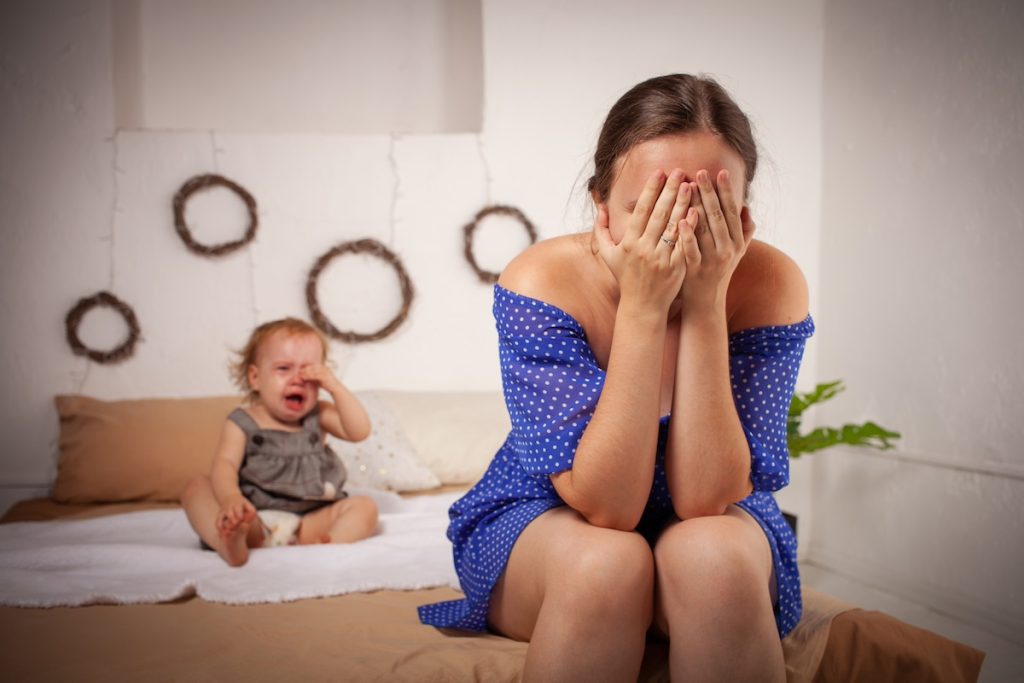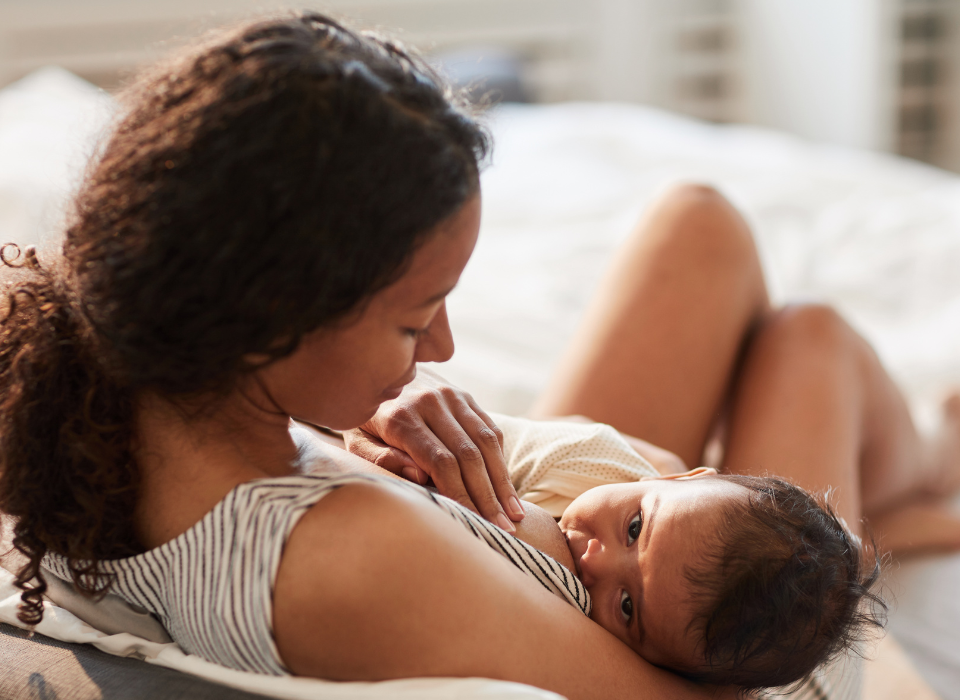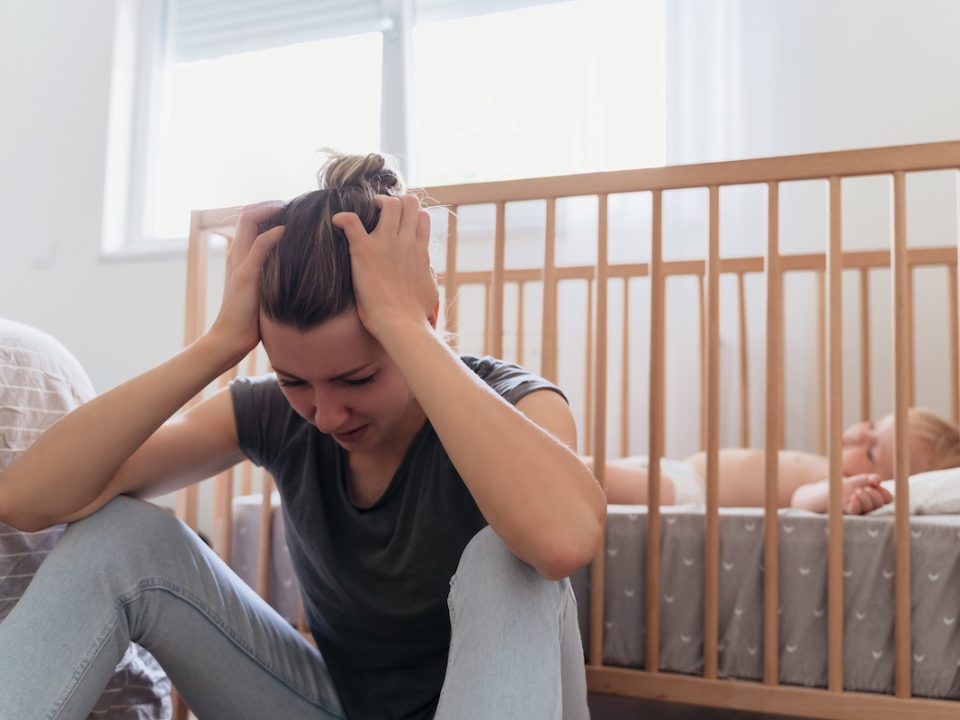
Understanding Postpartum Depression Peaks: When Does It Occur?
April 30, 2024
Do I Have Anxiety? Recognizing Symptoms in Men and Women
May 7, 2024While postpartum depression is well-known, postpartum anxiety is another common yet often overlooked mental health concern affecting new mothers. In this blog, we’ll delve into what postpartum anxiety is, its symptoms, when it typically starts, and the importance of going for a screening.

What Is Postpartum Anxiety?
It’s a type of anxiety disorder that occurs in the postpartum period, affecting many new mothers. While it’s normal for new parents to experience some degree of worry or stress after having a baby, postpartum anxiety involves excessive and persistent anxiety that interferes with daily functioning and well-being.
Postpartum Anxiety Symptoms
This type of anxiety can manifest in various ways, but some common symptoms include:
- Excessive Worry: New mothers with postpartum anxiety may experience overwhelming and irrational worries about their baby’s health, safety, or well-being. These worries may be persistent and difficult to control, even when there is no apparent cause for concern
- Physical Symptoms: This type of anxiety can also manifest as physical symptoms such as racing heart, trembling, sweating, dizziness, shortness of breath, and gastrointestinal distress. These physical symptoms may contribute to feelings of discomfort and distress
- Hypervigilance: Mothers with postpartum anxiety may exhibit hypervigilant behavior, constantly monitoring their baby for signs of distress or danger. This heightened alertness can lead to sleep disturbances and increased stress levels
- Irritability: It can also cause irritability, agitation, and mood swings. Mothers may feel on edge or easily angered, even over minor issues
- Difficulty Relaxing: Women with postpartum anxiety may have trouble relaxing or letting go of worries, even when their baby is sleeping or being cared for by someone else. This inability to relax can contribute to feelings of exhaustion and overwhelm
When Does Postpartum Depression Start?
Postpartum depression typically begins within the first few weeks to months after giving birth, with symptoms often becoming most severe around 4 to 6 weeks postpartum. However, postpartum depression can occur anytime within the first year after childbirth, and some women may not experience symptoms until later in the postpartum period.
It’s important to note that postpartum depression and postpartum anxiety are separate but related conditions, and women may experience one or both simultaneously. Anxiety can occur independently of depression or co-occur with it.
Go Get Screened
Screening for postpartum anxiety is an essential component of postnatal care, allowing healthcare providers to identify women who may be at risk for or experiencing symptoms. Screening typically involves asking new mothers about their thoughts, feelings, and stress-related behaviors.
One standard screening tool used for postpartum anxiety is the Edinburgh Postnatal Depression Scale (EPDS), which assesses symptoms of both depression and anxiety. However, some healthcare providers may use separate screening tools.
Postpartum anxiety screening may occur during routine postnatal appointments, usually within the first few weeks after giving birth. However, someone may also conduct a screening at later postpartum visits or whenever a woman presents with symptoms suggestive of postpartum anxiety.
Early detection and intervention for postpartum anxiety are crucial for promoting maternal mental health and well-being. Women who screen positive may be referred to mental health professionals for further evaluation and treatment. Treatment options for postpartum anxiety may include therapy, medication, support groups, and self-help strategies.
By raising awareness of postpartum anxiety symptoms, onset, and screening importance, we can better support new mothers and promote maternal mental health and well-being.
_________________________________________________________________________________
Looking for treatment for an eating disorder, anxiety, depression, trauma, or postpartum mood disorder?
Evolve Counseling Services is a specialized team of Licensed Therapists providing treatment in Paoli.



